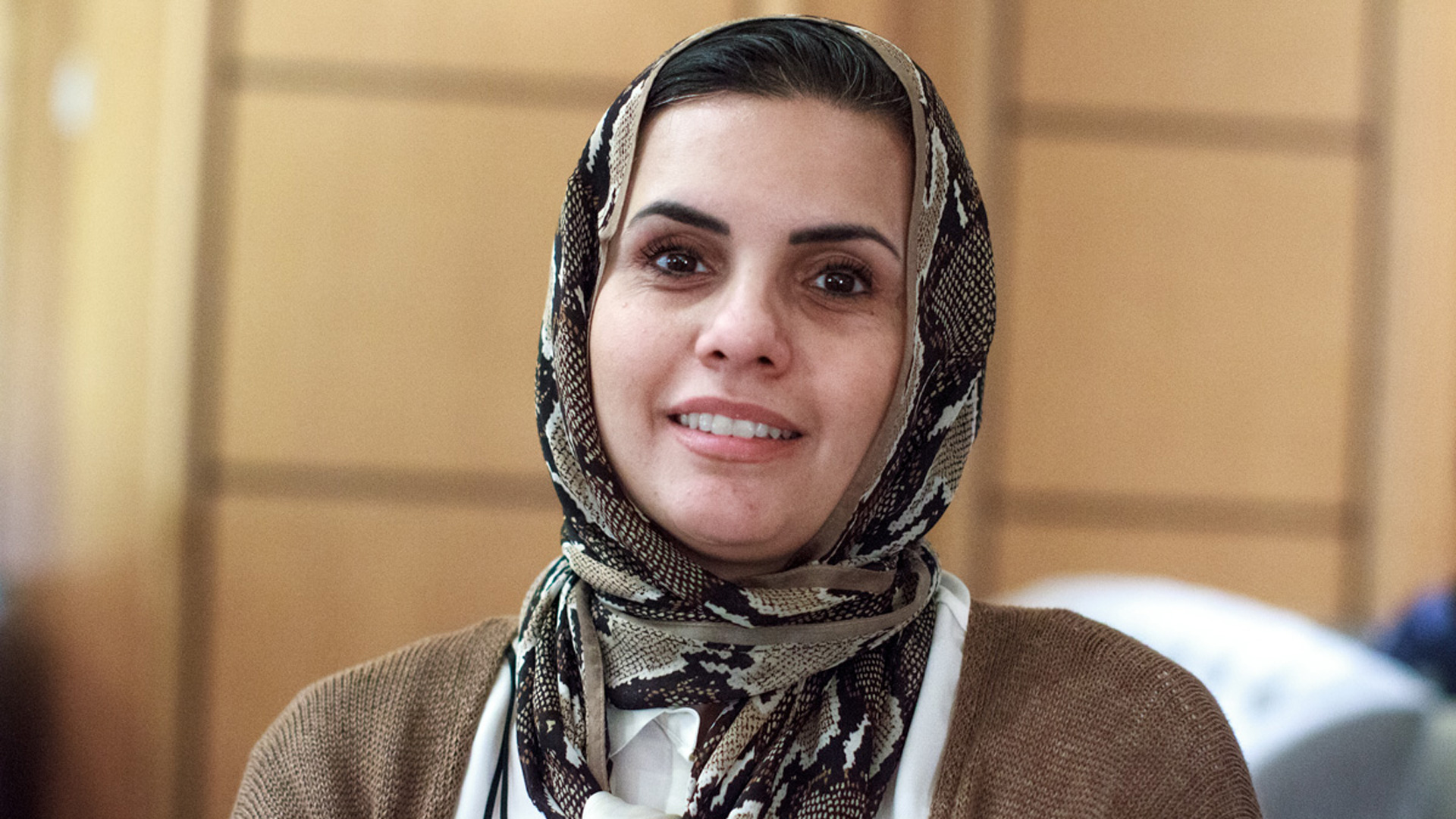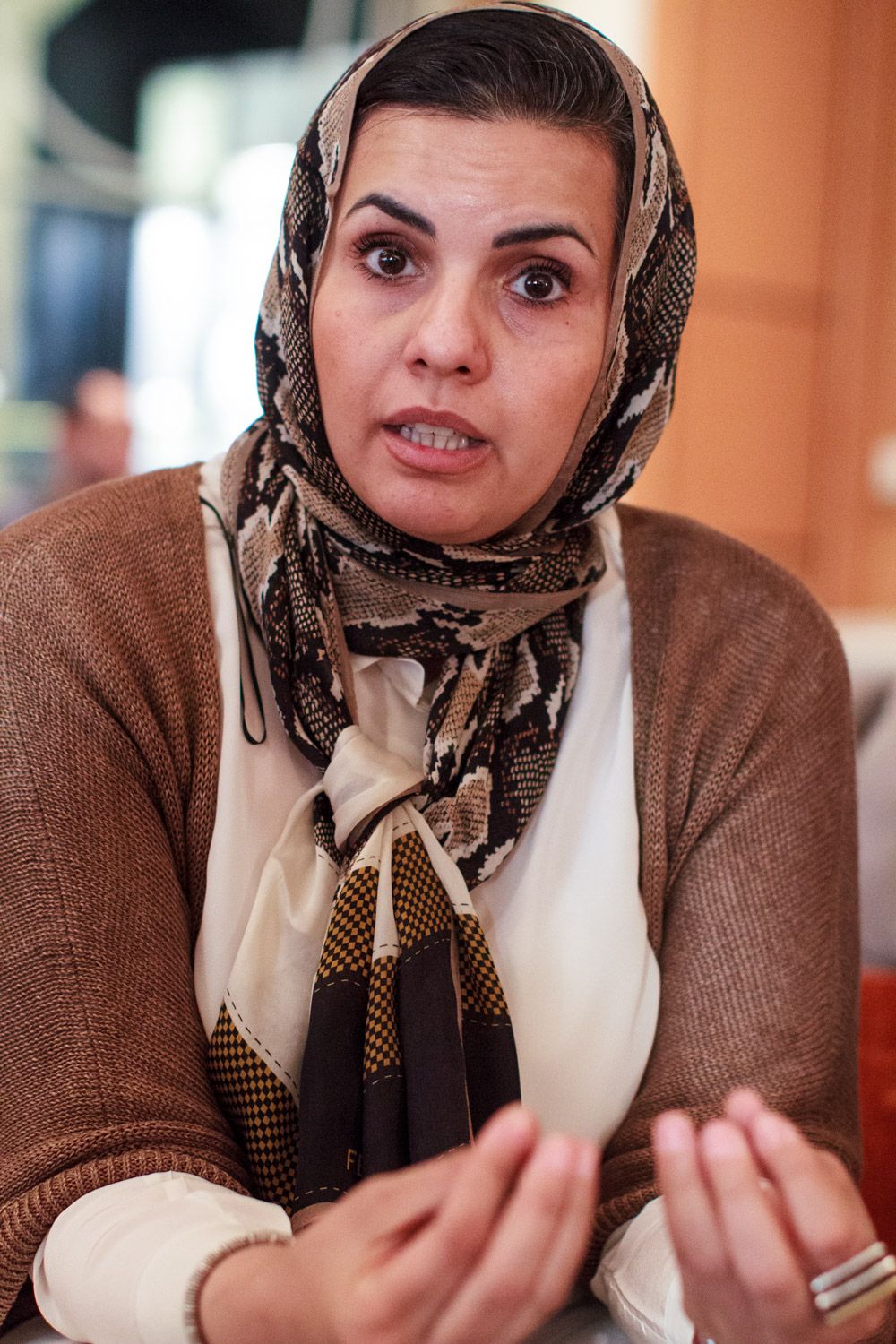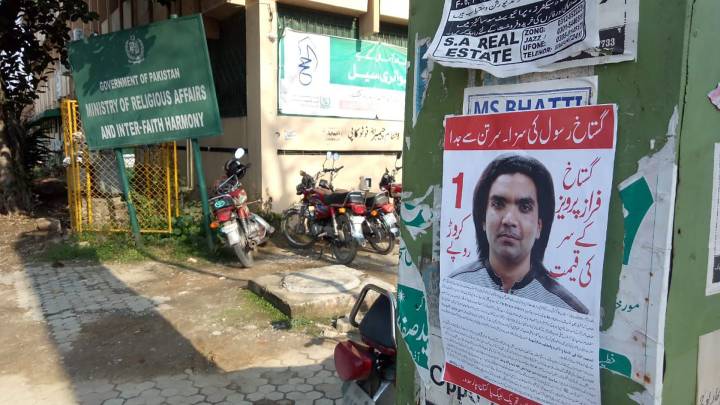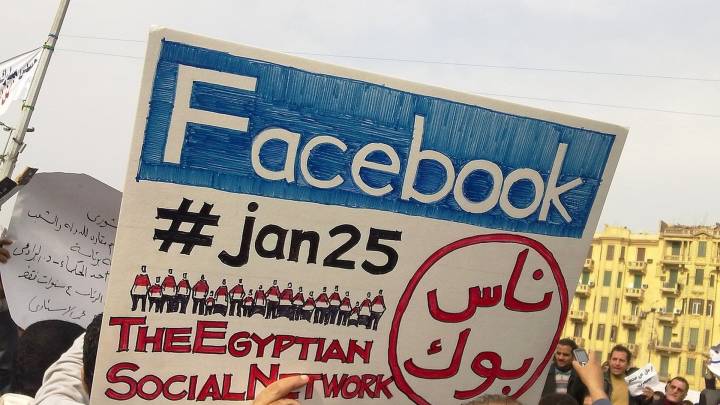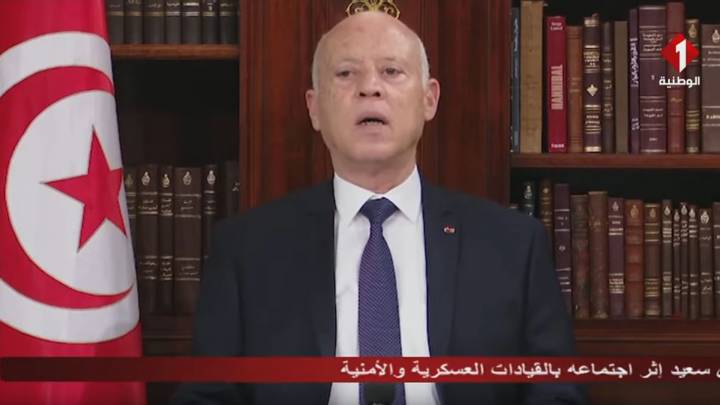A social activist in exile in Cairo, the story of Zahra Langhi and her family is interwoven with the modern history of Libya.
Zahra Langhi, a Libyan exile and human rights defender, was nine years old when she realised that her family might never be safe. Her father, Ahmad Langhi, was a member of the National Front for the Salvation of Libya (NFSL), the most prominent opposition group to Libya’s then dictator Muammar Gaddafi. On 17 April 1984, he protested outside the Libyan embassy in London following the execution of two students in Libya who had defied the regime.
Libya was our house; it was in our food and in our spices. Automatic gunfire came from the embassy that day, killing police officer Yvonne Fletcher and injuring 11. Langhi, now 42, remembers looking into her grandmother’s eyes when they heard the news. “She fell ill immediately,” Langhi tells me on the balcony of the Kempinski Hotel in Cairo, Egypt. “My father and uncle were okay. But I knew there was always a chance that something could happen to them.”
Langhi is candid when she speaks. Her childhood, she admits, was an insecure time. Her family fled Libya in 1978 when she was three years old, and then moved to Cairo a year after the attack in London. Her father often travelled to Algeria and Chad, where the NFSL’s army plotted to overthrow the government several times but failed. Langhi credits exile for her having grown up with a strong sense of national identity. The paradox was defining: she was Libyan and a stranger to her country.
“Sometimes Libyans in exile are keen to be more traditional than Libyans in the country,” she says, squinting her eyes in the sun. “Libya was our house; it was in our food and in our spices.”
Modern Libya is inseparable from Langhi’s heritage. With pride, she says that her grandfather, Yusuf Langhi, was one of the first municipal heads of Benghazi, helping Libya negotiate independence from the British and French in front of the UN, which it won on 24 December 1951.
Sixty years later, Langhi returned to play a prominent role in Libya’s liberation, this time from Gaddafi. She first went to Tripoli, the capital, in November 2011 to attend a meeting with the Libyan Women’s Platform for Peace (LWPP), a network she had co-founded just a month before. The aim of the LWPP was to ensure the political participation of women in post-Gaddafi Libya.
“Women were major participants in the revolution,” she says during our first conversation in the Four Seasons Hotel in Cairo. “But we were already being sidelined after Gaddafi was overthrown.”
We became a democracy with arms. It was hypocrisy. Langhi had a lot of work to do now that she was finally home. The LWPP started lobbying the National Transitional Council (NTC), Libya’s first ruling body after Gaddafi, for a quota of female candidates in the electoral law. Her colleagues pushed for 35 per cent, but Langhi wanted more. “Women are half the population,” she tells me, puzzled. “I thought, ‘Shouldn’t we be lobbying for 50 per cent?’”
To all their frustration, the proposed law excluded women, minorities, dual citizens and former Gaddafi officials. Some female activists thought to bargain to improve the status of women, while neglecting the other groups who were sidelined.
But Langhi had a better idea; she and others assembled a committee of legal experts to draft a new and inclusive law. The committee created the ‘zipper lists’ – voting ballots that alternated between male and female candidates vertically and horizontally.
Once adopted, the zipper lists proved a major success. In Libya’s first parliamentary election on 7 July 2012, 16.5 per cent of women were voted into the General National Congress (GNC).
Losing a friend
Despite the triumph, the GNC couldn’t stop militias from terrorising the country. Militia leaders even won seats in parliament and threatened congress if they didn’t get their way. They also put their groups on the state payroll, enticing thousands of young men into their ranks.
“We became a democracy with arms. It was hypocrisy,” says Langhi, raising her voice. “The LWPP was no longer focused on female participation in politics. The root cause of our problem was the unchecked militarisation in the country.”
In 2014, Langhi returned to Cairo, powerless as many of her activist peers died at the hands of militias. Political assassination of activists started in summer 2013, increasing the following year and peaking in summer 2014. All the while, new elections were approaching that summer, yet she was sceptical over what they would bring.
When the elections arrived, she stayed in Egypt. But her close friend Salwa Bughaighis, a lawyer and fellow co-founder of the LWPP, went to Libya to vote and encourage others to do the same. Not usually active on social media, Bughaighis posted photos of herself casting a ballot on Facebook. Once Langhi saw them, she called her right away.
“She was aware of the risks. She told me, ‘Don’t worry Zahra, I will pack up and travel tomorrow,’ Langhi recalls, re-enacting the conversation. “But I felt it. I told her, ‘Salwa take care, [the militias] might do something mad.’”
They did. Soon after Bughaighis hung up, armed men stormed into her home and shot her dead. They also kidnapped her husband, who remains missing. The news devastated Langhi, who calls the murder a turning point for her battered country.
“They came into her house and killed her,” Langhi says repeatedly, still appalled by the way her friend was murdered. “For that to happen in Benghazi, a supposedly conservative city, is shocking.”
Disagreements
Libya slid into another civil war when the GNC lost the elections but refused to step down. The House of Representatives (HOR), the body that was supposed to replace them, was forced to relocate to the far eastern city of Tobruk, to which Langhi travelled to attend the inauguration on 11 August 2014. She was reluctant to go, but says she owed it to Bughaighis and others who had died to ensure that the day would come.
Nowadays, Langhi doesn’t see eye to eye with her father, a member of Libya’s High State Council, an advisory body formed out of the UN-brokered Libyan Political Agreement (LPA) in 2015. She says her father, who lives between Egypt and Libya, is most grateful that Gaddafi is gone. So is she, but she is more outraged at militia atrocities since the revolution.
“My father thinks we must negotiate with the strongest militias if we want to bring peace,” she says, acknowledging the pragmatism. “But I can’t envision a peace where we give amnesty to war criminals. I don’t want to see a warlord as a head of state. That’s the issue I have with my father’s approach. That’s where we disagree.”
Instead, the headstrong daughter prefers bottom-up initiatives that address the grievances of communities and put an end to impunity. For her, human rights must be respected as a condition for peace. That seems improbable for now, but Langhi refuses to abandon her ideals.
“I’m not optimistic, but I can never lose hope,” she tells me, pausing. “We have to struggle for a better Libya. We owe it to those who died dreaming for it.”

